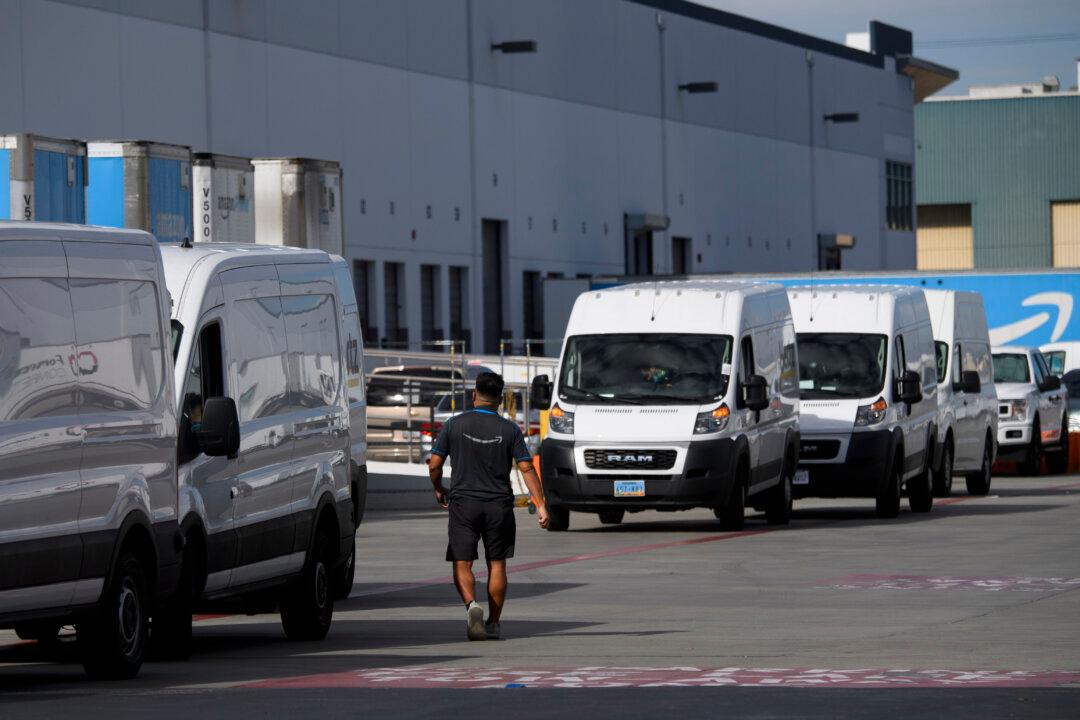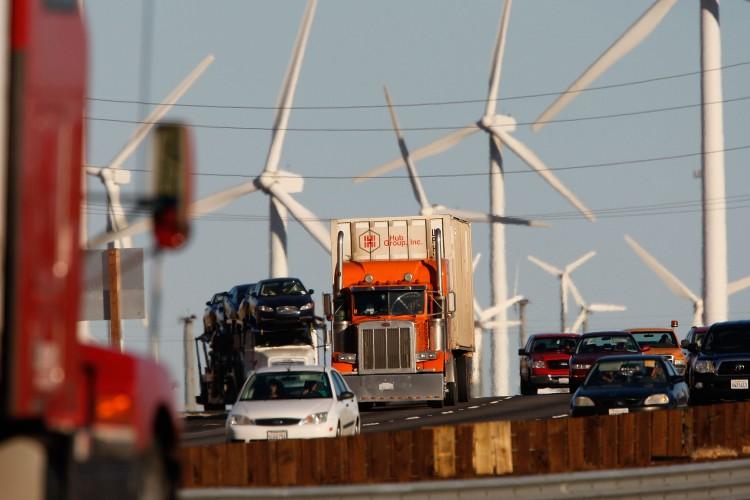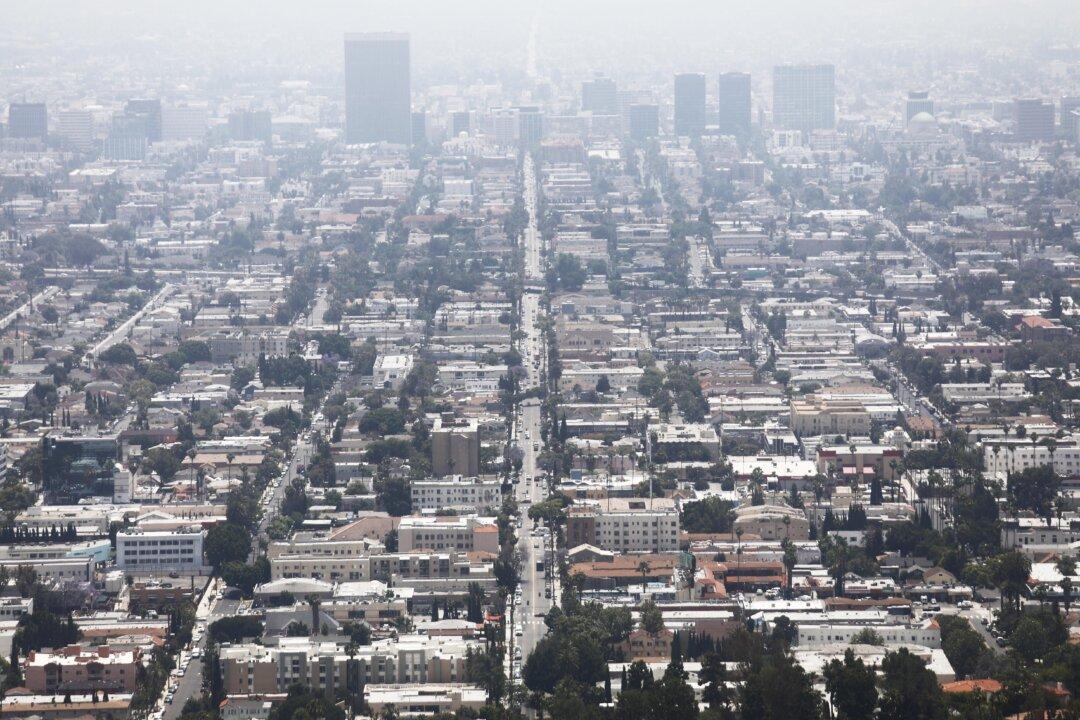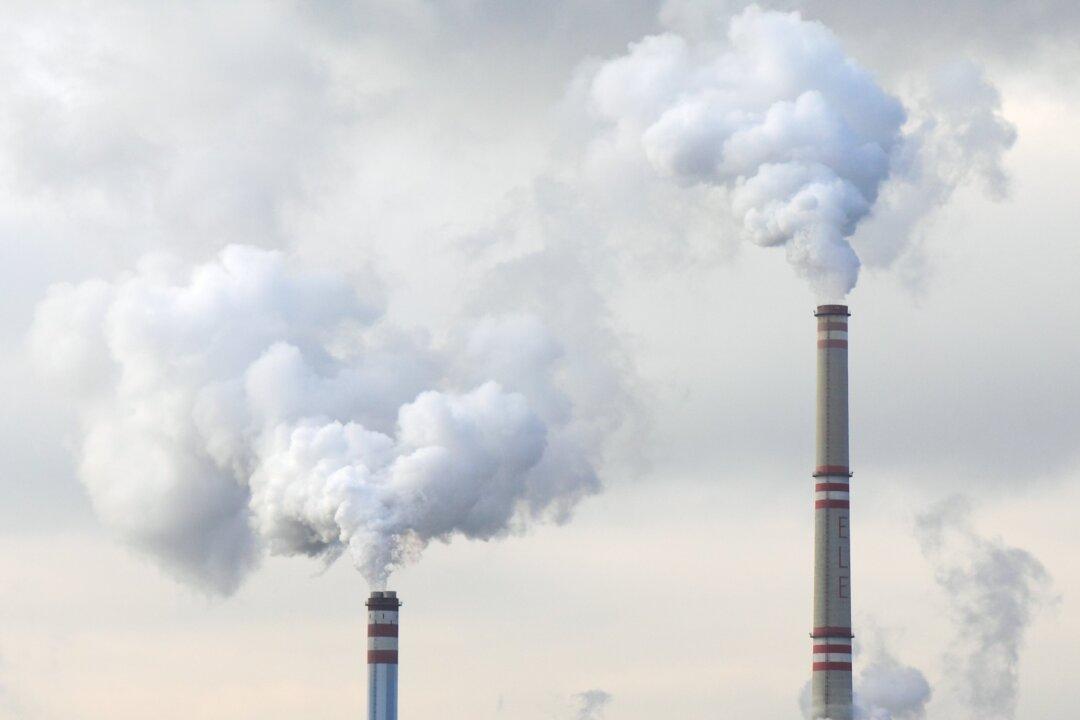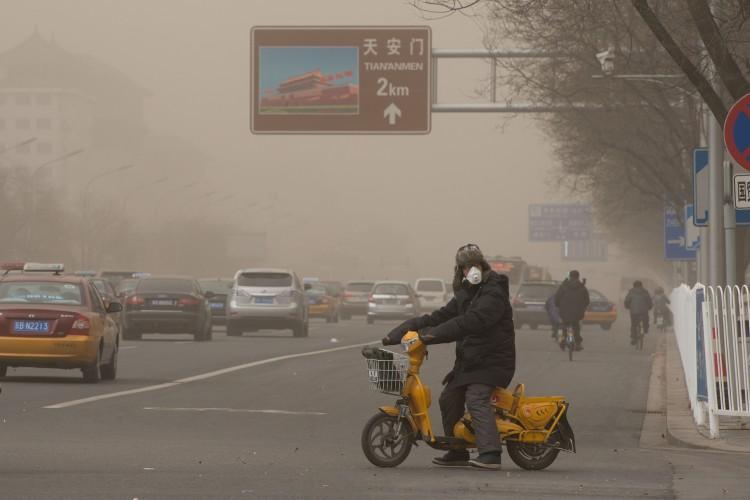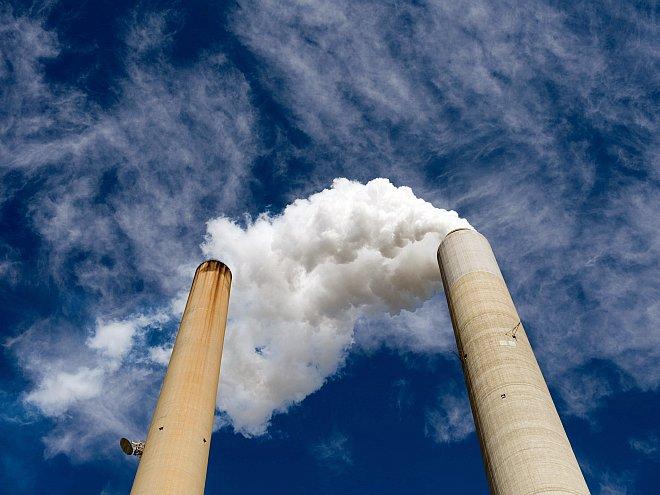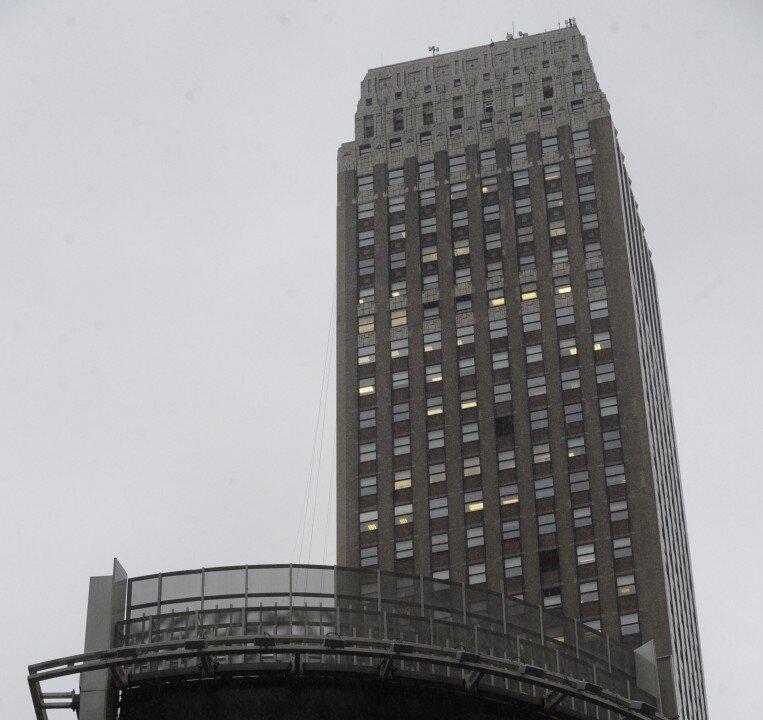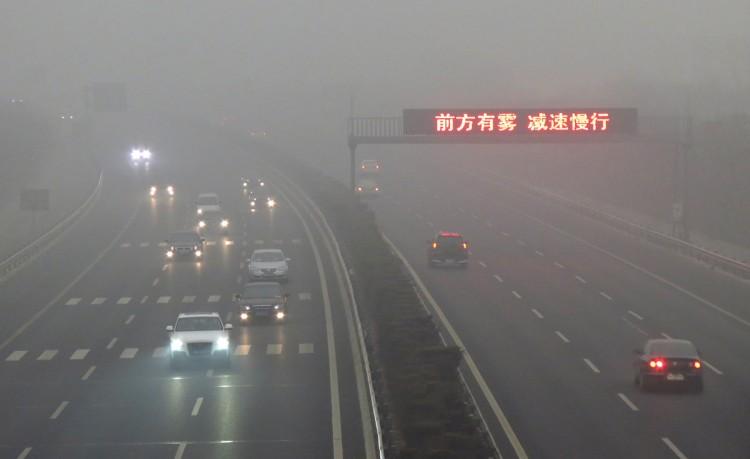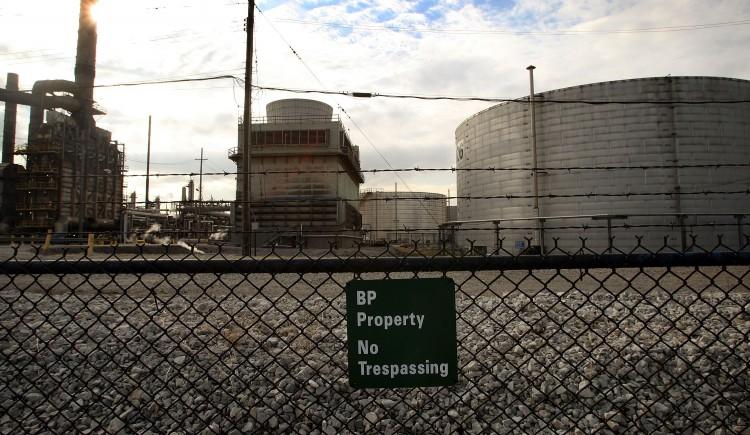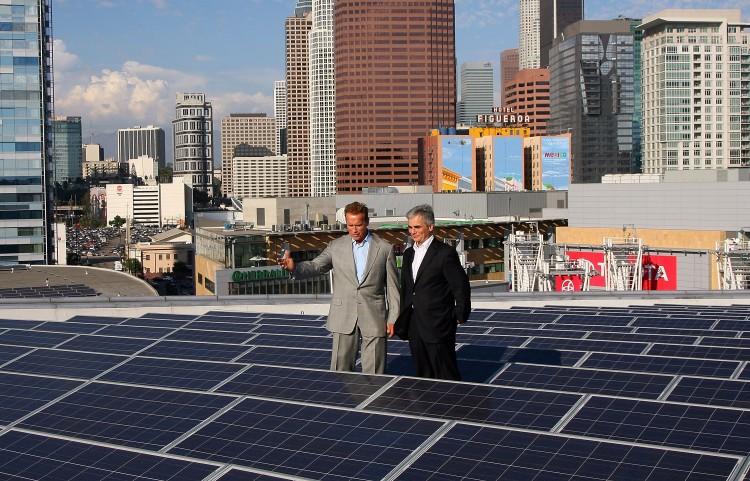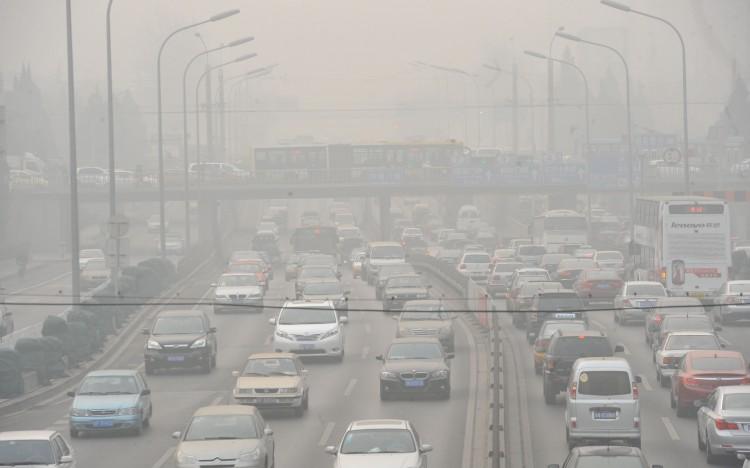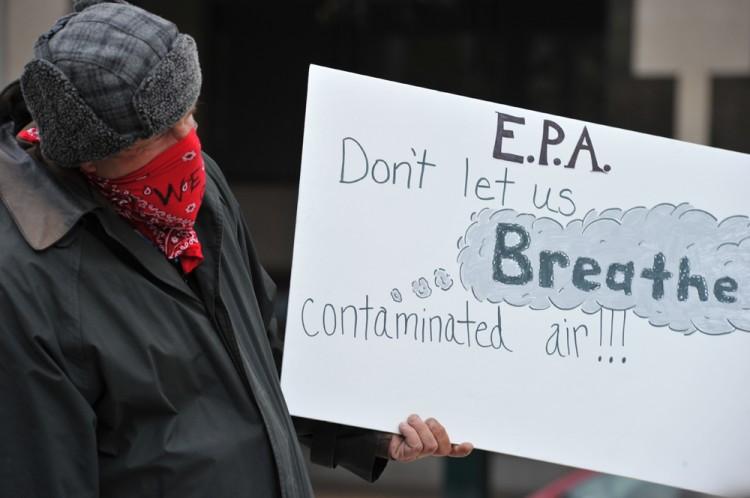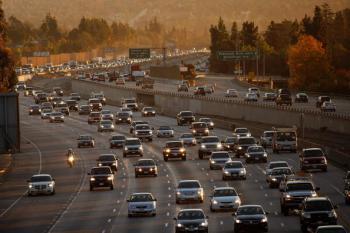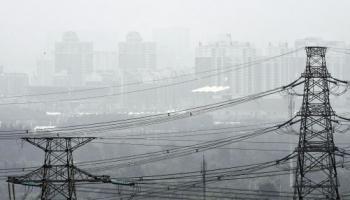Focus
air pollution and quality
LATEST
E-Commerce Hubs Worsen Air Pollution, New Study Claims
Using satellites, traffic and demographic data, researchers say they discovered nitrogen dioxide was 20 percent higher in areas near e-commerce warehouses.
|
|
Air Pollution Shrouding China and People’s Health
The issue of air quality and lung cancer in China is more life-threatening than the SARS virus outbreak of 2003, according to a respiratory disease expert.
|
NY State Suing EPA Over Methane Emissions From Oil and Natural Gas Industry
New York State Attorney General Eric Schneiderman notified the federal Environmental Protection Agency (EPA) of eight states’, including New York, intent to sue for violating the Clean Air Act by failing to address methane emissions from the oil and natural gas industry.
|
Bloomberg Supports EPA Limit on Mercury
Mayor Michael Bloomberg and 90 other mayors nationwide presented a statement to the U.S. Environmental Protection Agency (EPA) Tuesday, showing support for toxic air pollutant restrictions introduced recently by the agency.
|
China: US Embassy Should Stop Reporting Beijing’s Air Quality
China’s Vice Minister of Environmental Protection, upset by the U.S. Embassy in Beijing tweeting about Beijing’s air quality, has spoken out against foreign embassies measuring air quality in China.
|
BP to Pay $400 Million for Pollution Controls at Midwest Oil Refinery
On the southwestern shore of Lake Michigan is the small town of Whiting, Ind.—home to the largest inland oil refinery in the United States, and the recent conclusion of a big environmental controversy.
|
California Moving Forward on Greenhouse Gas Reduction Law
Through vigorous regulations on fuel standards, vehicles, and communities, California’s sweeping Global Warming Solutions Act is seen as a broad solution that will attempt to significantly reduce emissions and improve air-quality levels over the next decade and beyond.
|
Chinese Electric Cars Do More Harm Than Gas Vehicles, Researchers Find
Researchers at the University of Tennessee (UT) found that pollution from Chinese electric cars could be more harmful to health than that of gasoline vehicles.
|
Court to Review Texas Complaint Against EPA
The D.C. Circuit Court of Appeals will allow Texas to delay implementation of new EPA Cross-State Air Pollution Rules (CSAPR). While the court considers the Texas petition, the state must continue to enforce the old air-pollution standards.
|
America’s Most Polluted Cities
In this week’s American Lung Association report, California still fell short on reducing the air pollution.
|
Trust Beijing Officials, Air Quality is Good, Pleads IOC
The International Olympic Committee (IOC) is asking journalists and athletes to trust the Beijing official figures on air quality and trust that it is in journalists’ and athletes’ best interests not to know the current rate of pollution in the Chinese capital.
|
Scripps Scientists Will Assess Beijing Olympics Air Pollution Control Efforts
Flying downwind from Chinese mainland, unmanned aerial vehicles will measure emissions of soot and other forms of black carbon during China’s ‘great
shutdown.’
|
E-Commerce Hubs Worsen Air Pollution, New Study Claims
Using satellites, traffic and demographic data, researchers say they discovered nitrogen dioxide was 20 percent higher in areas near e-commerce warehouses.
|
|
Air Pollution Shrouding China and People’s Health
The issue of air quality and lung cancer in China is more life-threatening than the SARS virus outbreak of 2003, according to a respiratory disease expert.
|
NY State Suing EPA Over Methane Emissions From Oil and Natural Gas Industry
New York State Attorney General Eric Schneiderman notified the federal Environmental Protection Agency (EPA) of eight states’, including New York, intent to sue for violating the Clean Air Act by failing to address methane emissions from the oil and natural gas industry.
|
Bloomberg Supports EPA Limit on Mercury
Mayor Michael Bloomberg and 90 other mayors nationwide presented a statement to the U.S. Environmental Protection Agency (EPA) Tuesday, showing support for toxic air pollutant restrictions introduced recently by the agency.
|
China: US Embassy Should Stop Reporting Beijing’s Air Quality
China’s Vice Minister of Environmental Protection, upset by the U.S. Embassy in Beijing tweeting about Beijing’s air quality, has spoken out against foreign embassies measuring air quality in China.
|
BP to Pay $400 Million for Pollution Controls at Midwest Oil Refinery
On the southwestern shore of Lake Michigan is the small town of Whiting, Ind.—home to the largest inland oil refinery in the United States, and the recent conclusion of a big environmental controversy.
|
California Moving Forward on Greenhouse Gas Reduction Law
Through vigorous regulations on fuel standards, vehicles, and communities, California’s sweeping Global Warming Solutions Act is seen as a broad solution that will attempt to significantly reduce emissions and improve air-quality levels over the next decade and beyond.
|
Chinese Electric Cars Do More Harm Than Gas Vehicles, Researchers Find
Researchers at the University of Tennessee (UT) found that pollution from Chinese electric cars could be more harmful to health than that of gasoline vehicles.
|
Court to Review Texas Complaint Against EPA
The D.C. Circuit Court of Appeals will allow Texas to delay implementation of new EPA Cross-State Air Pollution Rules (CSAPR). While the court considers the Texas petition, the state must continue to enforce the old air-pollution standards.
|
America’s Most Polluted Cities
In this week’s American Lung Association report, California still fell short on reducing the air pollution.
|
Trust Beijing Officials, Air Quality is Good, Pleads IOC
The International Olympic Committee (IOC) is asking journalists and athletes to trust the Beijing official figures on air quality and trust that it is in journalists’ and athletes’ best interests not to know the current rate of pollution in the Chinese capital.
|
Scripps Scientists Will Assess Beijing Olympics Air Pollution Control Efforts
Flying downwind from Chinese mainland, unmanned aerial vehicles will measure emissions of soot and other forms of black carbon during China’s ‘great
shutdown.’
|

